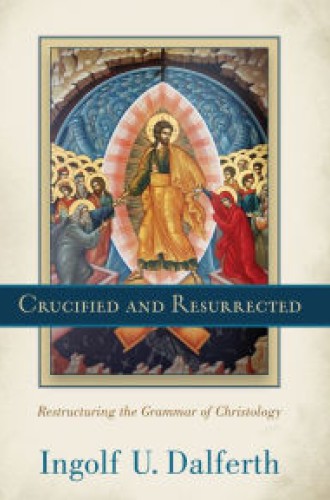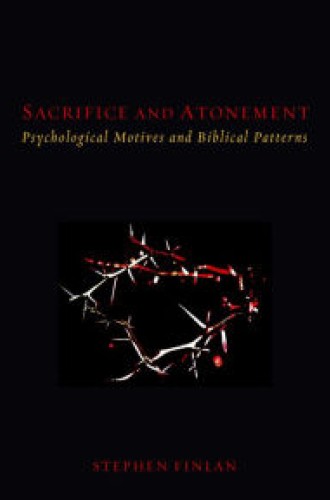Speaking of the cross
If Christian language is Christian just insofar as it takes its bearings from Jesus Christ, then there is a sense in which everything Christians say is Christology or Christ-talk—even when Christ is not being mentioned. Taken in that ample sense, Christology would embrace the whole gamut of topics that are usually discussed in Christian dogmatics or systematic theology. Such is Ingolf Dalferth’s impressive enterprise in Crucified and Resurrected. The “grammar” of Christology in his subtitle applies to discourse about God and God’s Trinity, to pneumatology and eschatology, and in the last quarter of the book to salvation and in particular the “saving significance” of the cross.
This last, lengthy chapter, “Atoning Sacrifice,” invites comparison with Stephen Finlan’s Sacrifice and Atonement. In some ways the two could not be more different. Dalferth writes as a philosophical theologian in a grand, heavyweight Germanic manner. Finlan is primarily a biblical scholar, a teacher, and an American—eclectic, cut-to-the-chase, and at times colloquial. Yet they share a common concern: they concur that the more or less standard way in which Western Christianity has understood and spoken of Christ’s death is very problematic.
Dalferth addresses the problem in the context of his more comprehensive project. The comprehensiveness is not optional; a more restricted approach could not do justice to the subject matter of Christian language, which is a complex, interconnected whole. The “grammatical” rules that govern talk about the Spirit, for example, can be understood only in relation to proper speech about humankind, which itself is bound up with the right way to speak of creation and of God as creator. In turn, this overall regulative coherence registers the fact that all genuinely Christian speech derives from one and the same confessional affirmation: God raised Jesus from the dead.






